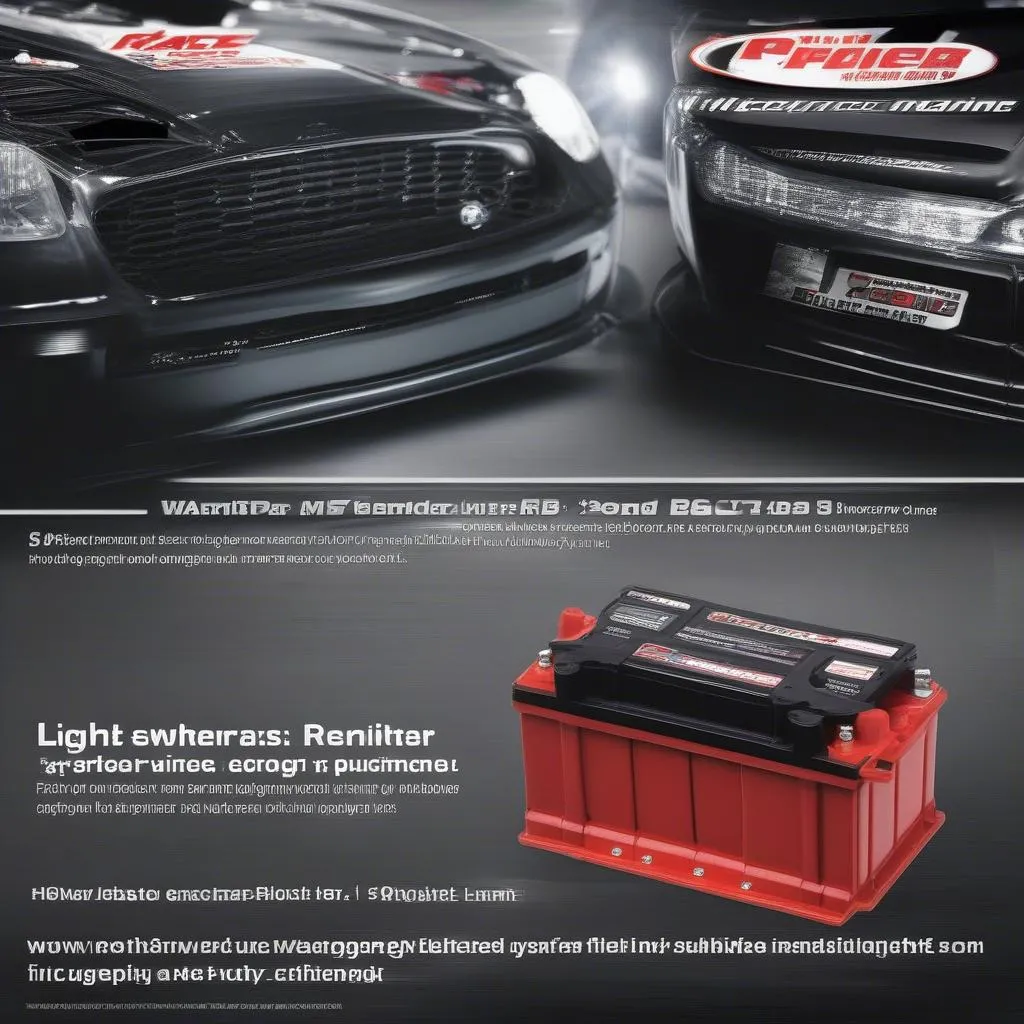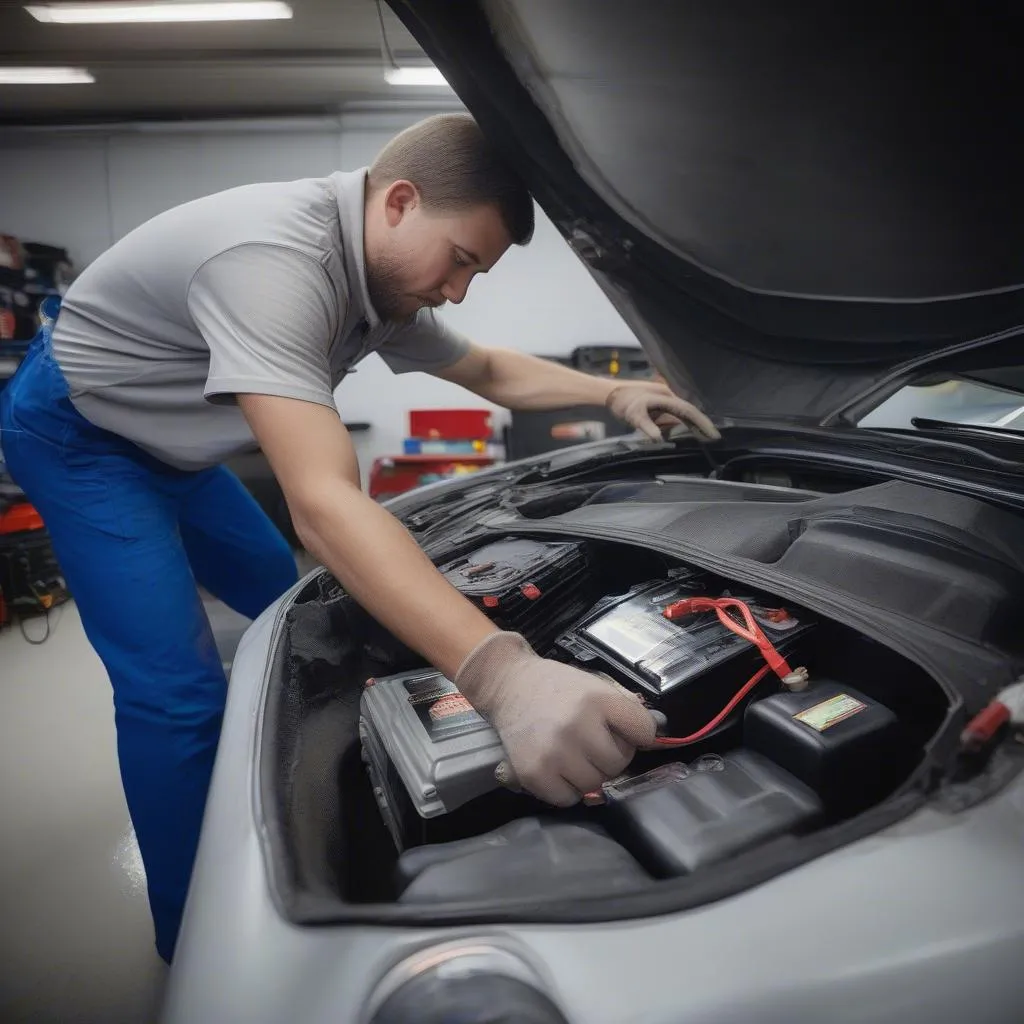Lightweight Race Car Battery: The Ultimate Guide to Powering Your Winning Ride
Let’s face it, every racer dreams of crossing the finish line first. But achieving victory requires more than just skill and determination. It also takes the right equipment, including a lightweight race car battery that can deliver the power you need without weighing down your vehicle.
Why Is A Lightweight Race Car Battery Important?
A lightweight race car battery is crucial for several reasons:
1. Performance: Every ounce counts when you’re racing. A lighter battery helps reduce overall weight, improving acceleration, handling, and braking.
2. Power Output: A high-performance battery ensures consistent power delivery to your engine, especially under high demand situations like starting and acceleration.
3. Durability: Race cars experience extreme conditions. A robust battery can withstand vibration, heat, and the demands of intense racing.
4. Space Optimization: Lightweight batteries often have a compact design, allowing you to maximize space in your race car for other critical components.
What Makes a Lightweight Race Car Battery Special?
Here’s what sets these batteries apart:
1. Technology:
a) Lithium-Ion (Li-Ion): These batteries are lightweight, have high energy density, and boast exceptional power output. They’re becoming increasingly popular in race cars thanks to their impressive performance.
b) Lead-Acid: While heavier, lead-acid batteries are still a common choice in racing due to their affordability and proven reliability.
c) Advanced Lead-Acid: This newer type of lead-acid battery features advanced technology that delivers both lightness and high performance. It’s often a good compromise for budget-conscious racers.
2. Construction:
Lightweight race car batteries often use specialized materials and construction techniques to minimize weight:
a) Smaller Size: They’re typically smaller than standard batteries, allowing for compact installation.
b) Lightweight Components: Using lightweight alloys and advanced materials in the battery case and internal components helps reduce overall weight.
c) Minimal Internal Components: Some batteries are designed with fewer internal components, which contribute to their lightweight profile.
3. Features:
a) High Cranking Amps (CCA): This indicates the battery’s ability to deliver high starting power, essential for quick engine starts.
b) Low Internal Resistance: A low internal resistance ensures that the battery can deliver maximum power without losing energy.
c) Advanced Safety Features: Lightweight race car batteries often come with enhanced safety features, like thermal protection, to prevent overheating and ensure reliability.
What to Consider When Choosing a Lightweight Race Car Battery?
1. Type of Race Car:
a) Formula 1: Li-Ion batteries are favored in this high-performance racing category due to their weight advantage and exceptional power.
b) NASCAR: While Li-Ion batteries are gaining traction, advanced lead-acid batteries are still popular in NASCAR due to their cost-effectiveness and reliability.
c) Drifting: Lightweight lead-acid batteries are commonly used in drifting, providing a good balance between weight and performance.
2. Your Budget:
Li-Ion batteries are typically more expensive than lead-acid batteries. Consider your budget when choosing a battery.
3. Available Space:
Measure the space available in your race car to ensure the battery fits properly.
4. Power Requirements:
Consider your engine’s starting power requirements and choose a battery with sufficient CCA to guarantee a smooth start.
FAQs About Lightweight Race Car Batteries:
1. How long does a lightweight race car battery last?
This depends on the battery type and usage. Li-Ion batteries tend to have a shorter lifespan compared to lead-acid batteries, but they offer exceptional performance. Advanced lead-acid batteries offer a balance between lifespan and performance.
2. How do I charge a lightweight race car battery?
Use a specific charger designed for the type of battery you’re using. Follow the charging instructions carefully to ensure optimal battery life.
3. Can I use a standard car battery in a race car?
It’s not recommended. Standard car batteries are heavier and may not provide the power or reliability required for racing.
4. What are the best brands for lightweight race car batteries?
Some reputable brands include Odyssey, Optima, Braille Battery, and Lithium Works.
Final Thoughts:
Choosing the right lightweight race car battery is crucial for achieving optimal performance. By understanding the key factors discussed above, you can select a battery that meets your specific needs and helps you cross the finish line in style!
Need help with your race car’s electrical system? Our team of expert technicians can provide professional assistance. Contact us via Whatsapp: +84767531508 for reliable support 24/7.
 racing-car-battery-power
racing-car-battery-power
 race-car-battery-placement
race-car-battery-placement
 race-car-battery-charging
race-car-battery-charging
